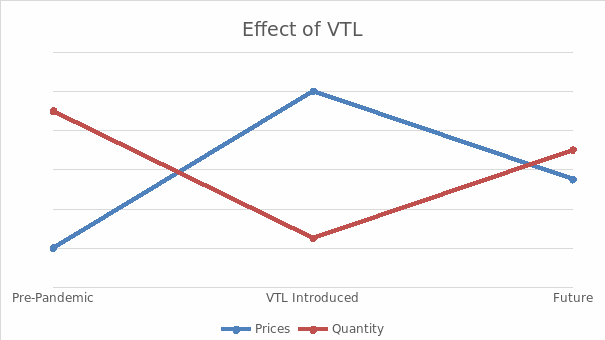The recent introduction of Vaccinated Travel Lanes (or VTL) in Singapore allows passengers with recognized vaccination certificates to use airlines on special terms. The key distinctive feature of VTL is the absence of tests and quarantines, which were major impediments to international travel. In response to the new initiative, airlines increased weekly flight frequency to the destinations for which VTLs are open. This development will likely affect the price and quantity of airline tickets in Singapore.
First, with Vaccinated Travel Lanes, new international transportation opportunities have emerged. Previously, this area has suffered from the unprecedented restrictions imposed by COVID-19 and its fallout. With only a few flights per week and destinations allowed, the ticket sales turnover drastically declined. Naturally, airlines sought to mitigate the impact of the travel crisis, which was a matter of survival for them. With the supply shortage, the decrease in demand was not as prominent, and people still desired to travel, including tourism activities and work affairs.
Thus, there was a deficit of available flights, which led to a surge in ticket prices, as an attempt of airlines to compensate for their losses. With VTLs taking effect, the supply intensifies, allowing companies to decrease their fares, and attract more passengers in this age of uncertainty. Graph 1 illustrates the expected decrease in airline ticket prices in Singapore, which will be observable but not drastic, as the intensity of air travel is still sub-par to pre-COVID days. Simultaneously, the demand for them is expected to be on the increase for several reasons (Graph 1). First, it has been relatively high even before the introduction of VTLs. Second, the decrease in airline fares will cause a direct surge in the number of tickets sold. Finally, passengers will respond to the convenience of these fast lanes of a kind, showing more interest in travels that are devoid of quarantines and risks.
